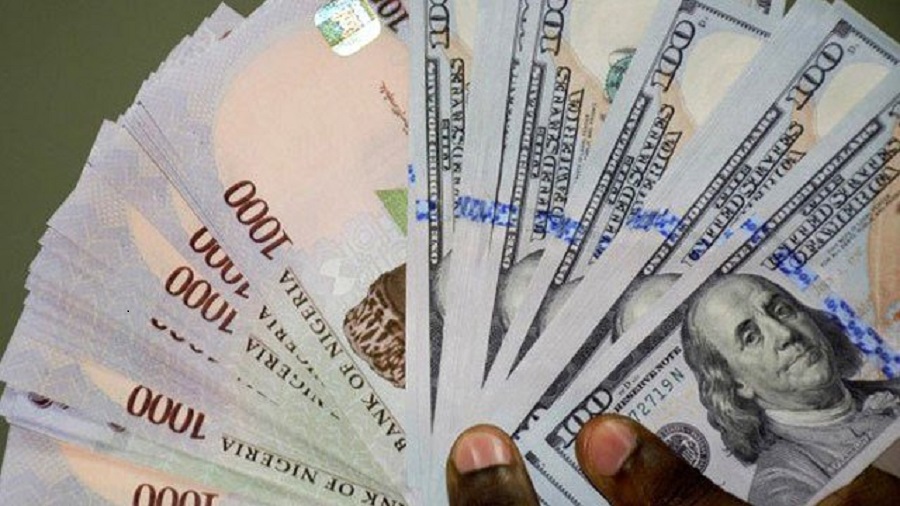Economy
Insurance Sector Stakeholders Seek Improved Tax Regime

By Dipo Olowookere
Government has been called upon to collaborate with stakeholders in the insurance sector to work out ways of streamlining the taxation applicable to the industry.
This appeal was made recently in Lagos at the one-day seminar organized by Leadway Assurance in conjunction with PricewaterhouseCoopers (PwC).
The various major players from the nation’s Insurance industry, who were at the meeting, also sought more support of government to support the industry’s growth and development.
It was gathered that the event was put together to examine Taxation Matters within the Insurance Value Chain.
Executive Director, General Insurance, Leadway Assurance, Adetola Adegbayi, who was one of the panellists, argued that the insurance industry currently suffers from a complex tax structure that has always resulted in multiple taxations without understanding the complexity of insurance placements.
She cited the example of deducting withholding tax from “re-insurance commission” as a fundamental problem because the practice did not recognize the fact that such “commissions” are not earnings but “a reserve against reinsurance credit risk” for premium liabilities passed through the books of the insurer.”
“Brokers, agents, insurers and re-insurers pay different taxes, all of which principally come from the premium paid by one entity – the insured – due to the nature of the insurance value chain,” she further explained.
Adegbayi, therefore, cautioned that unless all stakeholders came together “to collate the entire structure of the tax burden along the insurance value chain,” multiple taxations would continue to pose a threat to the well-being of the industry.
Another panellist, Partner, West Africa Tax Leader at PricewaterhouseCoopers, Mr Taiwo Oyedele, urged the government to support the insurance industry through a review of the specific tax regime that concerns the sector, adding that as the industry was saddled with bearing the nation’s risks, it should not also be burdened with taxes.
According to him, Nigeria’s poor social infrastructure continues to create multiple incidences of socio-economic dislocations that impact heavily on the survival of the insurance sector.
In his words, “the growing rate of crimes in the society increases claims settlement, just as bad roads often lead to accidents, which increase claims. In the same way, poor health care brings about high death rate, thereby pushing claims up.”
While acknowledging the concerns raised by players in the industry, the Federal Inland Revenue Service (FIRS) called for a yearly tax interactive session with the insurance industry to help address all tax related concerns beleaguering the insurance industry.
Executive Chairman of FIRS, Mr Babatunde Fowler, represented at the event by the Regional Coordinator FIRS, Mrs Toluwalase Akpomedaye, noted that such sessions have helped foster understanding with other sectors of the economy. He assured stakeholders that the FIRS was willing to work with the insurance industry to ensure growth and development, stressing that all the tax concerns expressed by operators in the industry were presently being looked into.
Mr Fowler also charged operators in the industry to support the government by paying all necessary taxes, adding that the economy needed taxes to thrive. President, Nigerian Council of Registered Insurance Brokers (NCRIB), Shola Tinubu, also supported the call for an annual tax session in the industry, pledging to take the message to the Nigerian Insurers Association (NIA) and the Institute of Loss Adjusters of Nigeria (ILAN).
In closing, Managing Director, Leadway Assurance Company Limited, Oye Hassan-Odukale, expressed gratitude to attendees for the poignant tax issues raised during the event, and to the regulator representatives for responding succinctly to each one. He further stated that the organization of the event by Leadway was in demonstration of the company’s desire to work with all stakeholders towards ensuring a clearer understanding of tax matters which in turn would foster development in the insurance industry and by extension the economy.
He noted that the proposed annual tax interactive session was a brilliant fall-out of the meeting and expressed the confidence that this would really help improve the relationship between FIRS and the insurance industry.
“I agree that there is need for the industry to have a yearly interactive forum with FIRS and the Lagos State Inland Revenue Service (LIRS),” he submitted.
Economy
NASD Bourse Rebounds as Unlisted Security Index Rises 1.27%

By Adedapo Adesanya
The NASD Over-the-Counter (OTC) Securities Exchange expanded for the first session this week by 1.27 per cent on Wednesday, February 25.
This lifted the NASD Unlisted Security Index (NSI) above 4,000 points, with a 50.45-point addition to close at 4,025.25 points compared with the previous day’s 3,974.80 points, as the market capitalisation added N30.19 billion to close at N2.408 trillion versus Tuesday’s N2.378 trillion.
At the trading session, FrieslandCampina Wamco Nigeria Plc grew by N5.00 to trade at N100.00 per share compared with the previous day’s N95.00 per share, Central Securities Clearing System (CSCS) Plc improved by N4.18 to sell at N70.00 per unit versus N65.82 per unit, and First Trust Mortgage Bank Plc increased by 14 Kobo to trade at N1.59 per share compared with the previous day’s N1.45 per share.
However, the share price of Geo-Fluids Plc depreciated by 27 Kobo at midweek to close at N3.27 per unit, in contrast to the N3.30 per unit it was transacted a day earlier.
At the midweek session, the volume of securities went down by 25.3 per cent to 8.7 million units from 11.6 million units, the value of securities decreased by 92.5 per cent to N80.7 million from N1.2 billion, and the number of deals slipped by 33.3 per cent to 32 deals from the preceding session’s 48 deals.
At the close of business, CSCS Plc remained the most traded stock by value on a year-to-date basis with 34.1 million units exchanged for N2.0 billion, trailed by Okitipupa Plc with 6.3 million units traded for N1.1 billion, and Geo-Fluids Plc with 122.0 million units valued at N478.0 million.
Resourcery Plc ended the trading session as the most traded stock by volume on a year-to-date basis with 1.05 billion units valued at N408.7 million, followed by Geo-Fluids Plc with 122.0 million units sold for N478.0 million, and CSCS Plc with 34.1 million units worth N2.0 billion.
Economy
Investors Lose N73bn as Bears Tighten Grip on Stock Exchange

By Dipo Olowookere
The bears consolidated their dominance on the Nigerian Exchange (NGX) Limited on Wednesday, inflicting an additional 0.09 per cent cut on the market.
At midweek, the market capitalisation of the domestic stock exchange went down by N73 billion to N124.754 trillion from the preceding day’s N124.827 trillion, and the All-Share Index (ASI) slipped by 114.32 points to 194,370.20 points from 194,484.52 points.
A look at the sectoral performance showed that only the consumer goods index closed in green, gaining 1.19 per cent due to buying pressure.
However, sustained profit-taking weakened the insurance space by 3.79 per cent, the banking index slumped by 2.07 per cent, the energy counter went down by 0.24 per cent, and the industrial goods sector shrank by 0.22 per cent.
Business Post reports that 25 equities ended on the gainers’ chart, and 54 equities finished on the losers’ table, representing a negative market breadth index and weak investor sentiment.
RT Briscoe lost 10.00 per cent to sell for N10.35, ABC Transport crashed by 10.00 per cent to N6.75, SAHCO depreciated by 9.98 per cent to N139.35, Haldane McCall gave up 9.93 per cent to trade at N3.99, and Vitafoam Nigeria decreased by 9.93 per cent to N112.50.
Conversely, Jaiz Bank gained 9.95 per cent to settle at N14.03, Okomu Oil appreciated by 9.93 per cent to N1,765.00, Trans-nationwide Express chalked up 9.77 per cent to close at N2.36, Fortis Global Insurance moved up by 9.72 per cent to 79 Kobo, and Champion Breweries rose by 5.39 per cent to N17.60.
Yesterday, 1.4 billion shares worth N46.2 billion were transacted in 70,222 deals compared with the 1.1 billion shares valued at N53.4 billion traded in 72,218 deals a day earlier, implying a rise in the trading volume by 27.27 per cent, and a decline in the trading value and number of deals by 13.48 per cent and 2.76 per cent, respectively.
Fortis Global Insurance ended the session as the busiest stock after trading 193.7 million units for N152.7 million, Zenith Bank transacted 120.7 million units worth N11.1 billion, Japaul exchanged 114.8 million units valued at N407.0 million, Ellah Lakes sold 98.4 million units worth N999.2 million, and Access Holdings traded 63.1 million units valued at N1.7 billion.
Economy
Naira Extends Losing Streak, Falls to N1,356/$1 at NAFEX

By Adedapo Adesanya
A 74 Kobo or 0.05 per cent decline was recorded by the Naira against the United States Dollar in the Nigerian Autonomous Foreign Exchange Market (NAFEX) on Wednesday, February 25, trading at N1,356.11/$1 compared with the N1,355.37/$1 it was traded on Tuesday.
The Nigerian currency also further depreciated against the Pound Sterling during the session in the official market by N6.70 to settle at N1,834.96/£1 versus the preceding day’s rate of N1,828.26/£1, and against the Euro, it tumbled by N4.94 to quote at N1,598.59/€1 compared with the previous session’s N1,596.36/€1.
In the same vein, the Nigerian Naira lost N6 against the Dollar at the GTBank forex desk to close at N1,367/$1, in contrast to N1,361/$1 it was exchanged a day earlier, and in the parallel market, it traded flat at N1,365/$1.
The continuation of the decline of the local currency has been tied to the Central Bank of Nigeria (CBN) buying US Dollars from the market to slow the rapid rise of the Naira.
The apex bank bought about $189.80 million to reduce excess Dollar supply and control how fast the Naira was gaining value.
The monetary policy committee (MPC) of the CBN on Tuesday reduced interest rates by 50 basis points to 26.50 per cent from 27 per cent after inflation eased in January 2026, a move analysts say is the best not to unsettle FX market, especially the Foreign Portfolio Investors (FPI_ inflows which have anchored much of the recent supply and weakened the recently restored monetary credibility.
“The 50bps move therefore provides a clear directional signal while still keeping overall monetary conditions restrictive, indicating the start of a shallow, data-dependent easing cycle rather than a radical shift to accommodative policy,” said Mr Kayode Akindele, CEO, Coronation Capital and Head, Coronation Research in an email.
As for the cryptocurrency market, benchmarked tokens rebounded in double digits, driven by bearish positioning and thin liquidity rather than by clear fundamental catalysts, with Cardano (ADA) growing by 16.2 per cent to $0.3015, and Solana (SOL) appreciating by 12.3 per cent to $88.66.
Further, Ethereum (ETH) surged 11.9 per cent to $2,076.66, Litecoin (LTC) expanded by 11.5 per cent to $57.15, Dogecoin (DOGE) rose by 11.5 per cent to $0.1025, Binance Coin (BNB) advanced by 7.6 per cent to $629.76, Ripple (XRP) jumped 7.2 per cent to $1.45, and Bitcoin (BTC) added 6.4 per cent to sell for $68,136.72, while the US Dollar Tether (USDT) and the US Dollar Coin (USDC) remained unchanged at $1.00 apiece.
-

 Feature/OPED6 years ago
Feature/OPED6 years agoDavos was Different this year
-
Travel/Tourism10 years ago
Lagos Seals Western Lodge Hotel In Ikorodu
-

 Showbiz3 years ago
Showbiz3 years agoEstranged Lover Releases Videos of Empress Njamah Bathing
-

 Banking8 years ago
Banking8 years agoSort Codes of GTBank Branches in Nigeria
-

 Economy3 years ago
Economy3 years agoSubsidy Removal: CNG at N130 Per Litre Cheaper Than Petrol—IPMAN
-

 Banking3 years ago
Banking3 years agoSort Codes of UBA Branches in Nigeria
-

 Banking3 years ago
Banking3 years agoFirst Bank Announces Planned Downtime
-

 Sports3 years ago
Sports3 years agoHighest Paid Nigerian Footballer – How Much Do Nigerian Footballers Earn
















